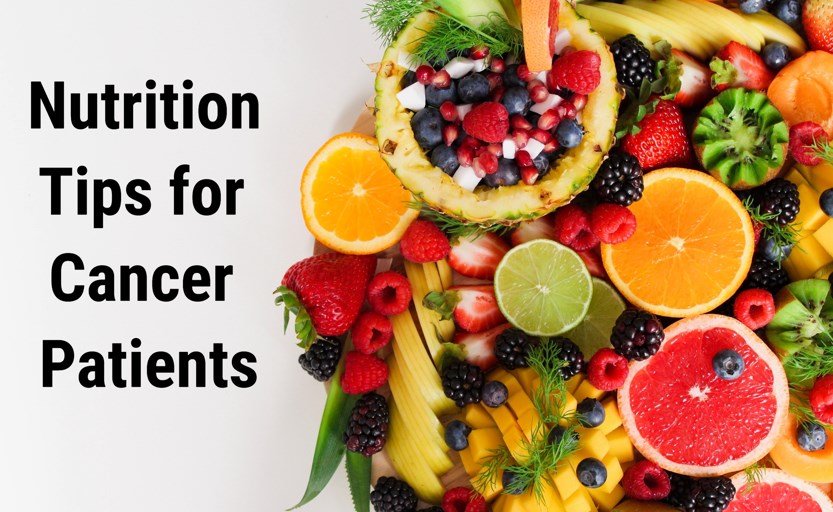Receiving a cancer diagnosis brings about significant changes in one’s life, and proper nutrition plays a crucial role in supporting the overall well-being and recovery of cancer patients. A well-balanced diet helps alleviate treatment side effects, boost immunity, maintain strength, and improve quality of life. In this article, we will explore essential nutrition tips tailored specifically for cancer patients. Additionally, we will highlight how Uniwigs.com offers a range of products to assist individuals facing hair loss during their cancer journey.

Prioritize a Well-Balanced Diet
During cancer treatment, it is vital to nourish your body with a well-balanced diet to support healing and maintain strength. Focus on consuming a variety of nutrient-dense foods that provide the necessary building blocks for recovery.It is important to include a wide range of fruits and vegetables in your diet, aiming for a diverse array of colors to obtain a variety of vitamins, minerals, and antioxidants that protect the body’s cells and promote overall health. Lean sources of protein such as poultry, fish, beans, lentils, and tofu aid in repairing and rebuilding tissues, supporting a healthy immune system, and maintaining muscle mass. Whole grains like brown rice, quinoa, whole wheat bread, and oats offer fiber, vitamins, and minerals while providing sustained energy levels and aiding digestion. Healthy fats from sources like avocados, nuts, seeds, and olive oil offer essential nutrients and anti-inflammatory properties beneficial for the recovery process.
Stay Hydrated
Staying hydrated is crucial for cancer patients, especially during treatments that may cause dehydration. Drinking plenty of water throughout the day is recommended. If plain water is unappealing, adding a slice of lemon or infusing it with fresh fruits can enhance its flavor. Herbal teas and clear broths also contribute to fluid intake.
Manage Treatment Side Effects
Cancer treatments often lead to side effects that may affect appetite and digestion. Here are some tips to manage common side effects: a. Nausea and Vomiting: Opt for smaller, frequent meals and avoid strong odors. Choose easily digestible foods like bland crackers, ginger, and herbal teas such as peppermint or chamomile. b. Mouth Sores: Select softer foods like smoothies, soups, and mashed potatoes that are easier to consume. Spicy, acidic, or crunchy foods that may irritate mouth sores should be avoided. c. Taste Changes: Experiment with different flavors and spices to enhance the taste of food. Marinating meats or adding herbs and seasonings can help make meals more appealing. d. Fatigue: Consume smaller, more frequent meals and snacks to maintain energy levels throughout the day. Including protein-rich foods and complex carbohydrates can help sustain energy. e. Diarrhea or Constipation: Gradually increase fiber intake and ensure adequate fluid consumption. Foods like whole grains, fruits, and vegetables aid in regulating bowel movements.
Nutrient-Dense Snacking
Frequent snacking can be beneficial for maintaining energy levels and ensuring proper nutrient intake. Opt for nutrient-dense snacks such as Greek yogurt, mixed nuts, fresh fruits, and homemade smoothies. These options provide essential vitamins, minerals, and healthy fats. Uniwigs.com offers a variety of healthy snack options designed to provide cancer patients with convenient and nutritious choices. By incorporating these snacks into your diet, you can support overall health and well-being during treatment.
Support Bone Health
Maintaining strong bones is crucial during cancer treatment. Include calcium-rich foods such as dairy products, fortified plant-based milk, leafy greens, and sesame seeds in your diet. These foods provide the necessary calcium to support bone health. Vitamin D is essential for calcium absorption. Spending time outdoors in the sunlight helps the body produce vitamin D naturally. If sunlight exposure is limited, discuss vitamin D supplementation with your healthcare provider.
Hair Loss and Confidence
Hair loss is a common side effect of cancer treatments, and Uniwigs.com recognizes the emotional impact it can have. Uniwigs.com offers a range of high-quality wigs, hair toppers, and extensions to provide comfort and natural-looking hair solutions. These products help boost confidence during treatment and recovery.Uniwigs.com understands the unique needs of individuals facing hair loss and provides a wide selection of options. By offering personalized and natural-looking solutions, Uniwigs.com empowers cancer patients to maintain their personal style and regain their self-confidence.
Conclusion
Nutrition plays a vital role in supporting the well-being and recovery of cancer patients. By prioritizing a well-balanced diet, staying hydrated, and managing treatment side effects, individuals can optimize their nutritional intake and support their bodies throughout the cancer journey. It is important to consult with a registered dietitian specializing in oncology nutrition for personalized guidance.
Together, let’s embrace the power of nutrition and positive self-image in the fight against cancer.
